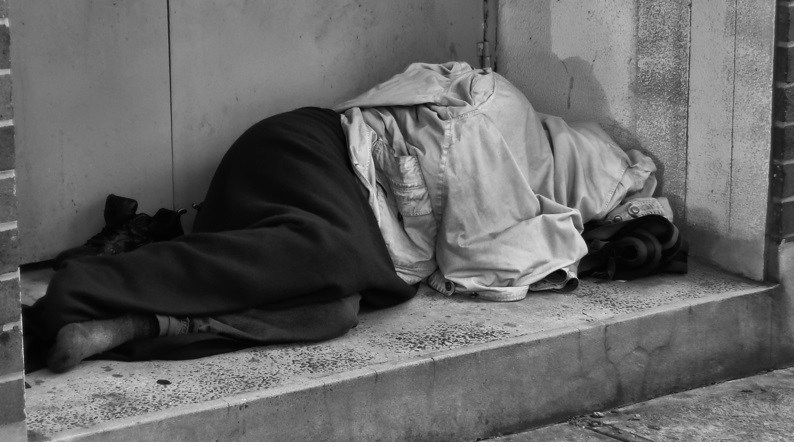Homeless exile
South Carolina approves plan to exile its homeless
 Homeless people in Columbia, South Carolina will have to choose between leaving the downtown area or getting arrested.
Homeless people in Columbia, South Carolina will have to choose between leaving the downtown area or getting arrested.
The Columbia City Council in South Carolina has unanimously approved a new plan, the "Emergency Homeless Response," that seeks to remove homeless people from the downtown area.
The initiative, which was started by Councilman Cameron Runyan, will consist of police officers -- who patrol the city center -- enforcing the city's "quality of life" laws, including bans on loitering, public urination and other violations.
In addition, officers will be instructed to keep homeless people out of the city's center. If the homeless refuse to leave, they could be arrested.
The city will partner with a local charity to keep an emergency shelter located on the outskirts of the city open 24 hours a day. The shelter in question has the capacity to hold up to 240 guests at a time. Once at the shelter homeless people won't be allowed to leave the premises.
Officials plan to post an officer on the road leading downtown to ensure homeless people don't walk towards the area. To leave the shelter, visitors need to set an appointment and be shuttled by a van.
"[This is the] most comprehensive anti-homeless measure that [he had] ever seen proposed in any city in the last 30 years," Michael Stoops, Director of Community Organizing at the National Coalition for the Homeless, told ThinkProgress. "Using one massive shelter on the outskirts to house all a city's homeless is something that has never worked anywhere in the country."
The program's scope is nowhere near large enough to deal with the 1,518 homeless people currently living in the Columbia area. That is six times the capacity of the shelter.
Homeless advocates are looking to overturn the plan claiming it violates people's rights to equal treatment under the law and their freedom of assembly.
"The underlying design is that they want the homeless not to be visible in downtown Columbia," Susan Dunn, South Carolina ACLU's legal director said. "You can shuttle them somewhere or you can go to jail. That's, in fact, an abuse of power."
(Published by UPI - August 21, 2013)